Survival preparedness has become a hot topic in the last decade or so thanks to the abundance of TV shows and movies covering the topic.
Regardless of the media channel you are following to get your information, you will always find something that gets you hooked and demanding for more. The problem with some of the survival knowledge being spread out there is that some of the survival myths that we learned of since our childhood are still managing to pass through the “fact check” filters. Often times, incorrect information is passed to the audience, creating what I call “false survivors.”
What the consumer learns from the media, does not always reflect the actual reality of what true survival is. This will eventually lead to a false sense of security, and consumers will accumulate knowledge that has no practical value. If one of these people will find themselves in a survival scenario, the information developed to entertain the masses won’t do them any good. If disaster strikes, they will be armed with inappropriate information, and they will not get a fighting chance to endure the survival ordeal.
Click here to find out how to survive when the lights go out!
That being said, I honestly believe it’s time to unlearn some of these so-called “survival rules.” Most of these myths may not be as accurate as you may think, so read on and stay informed.
Debunking survival myths
1. Food is your number one priority
Our generation is used to being spoiled with all sorts of foods and snacks. We are somehow programmed and manipulated to see food as our top priority, and we consume a lot of products (we also waste a lot). On a day to day basis, this is a common habit, but when you are in the woods, and your survival is at stake, food should be considered a priority only when you took care of all the other survival tasks.
You will last quite a lot of time before hunger will affect your judgment, and there are other tasks you should take care of first. Finding water and purifying it should be your main concern. Erecting a shelter and starting a fire are two survival tasks that also require your immediate attention. First, because it will keep you safe from the elements and will keep hypothermia away, and second because it will help you stay mentally prepared for what happens next.
Your belly may not agree with you and protest, but there are priorities you should be taken care of before searching for food. You could survive for weeks before succumbing to hunger, so get your priorities straight.
2. Making a fire is easy
You’ve seen the main lead in movies or TV shows banging two rocks together or rubbing two sticks of wood, and by magic, fire is created. If only would be that easy…
In the wilderness, fire is not a given, and I can’t be created as easily as shown in movies or TV shows. If you have a lighter or some fire starting gear in your pocket, you are in luck. However, if that’s not the case, you’re going to learn the hard way how difficult it is to create a fire. Things become even more complicated if you are in an unknown environment and if you lack resources for building the fire
You will try to make fire by friction, but I can guarantee that such task is impossible if you don’t have enough field experience. Even experienced survivalists know that making a fire without tools is a daunting task and primitive fire starting methods take time and a lot of patience.
Other factors you need to consider are the need to have proper material, moisture in the air, location, and so on. Never assume that fire is a given in a survival scenario and always carry a fire-starter with you at all times.
3. Hypothermia occurs only in cold environments
This is one of the survival myths that get most people killed. Hypothermia has been associated with cold environments, and people falsely believe that they can get it only in cold climates. They are wrong (dead wrong in some cases) since hypothermia may be caused by various factors. Most times, a wet environment, blowing wind and high elevation is all it takes for hypothermia to set in.
The above mentioned conditions can be found almost anywhere on the planet, and it doesn’t matter if you’re in a jungle or a damp forest.
To survive in an unknown environment and avoid hypothermia, you should follow a simple (common sense) rule; stay warm and dry. By doing so, you will prevent your body temperature from dropping to a life-threatening level. There are basic survival rules to follow here, and you need to dry your clothes once they get wet, you have to build a fire and always add an insulating layer between you and the ground.
Don’t envision a winter scenario when thinking about hypothermia. You don’t need snow and ice to stay alert, and you should acknowledge that it can sneak up on you even in a friendly environment.
4. Wild edibles will save you from starvation
Many times you’ve seen your favorite actors picking up berries and what not to calm their growling belly and keep hunger at bay. They seem to survive in the wild with the bare minimum, and somehow, the majority of the plants they encounter are edible. To be honest, this is one of my “favorite” survival myths, and it irritates me how it makes foraging seem like a walk in the park.
In reality, foraging is a totally different endeavor, and few people actually know what this skill requires. It takes a great amount of knowledge and experience in the field to learn what Mother Nature can provide, how and if her food resources are practical and the amount you need to avoid starvation.
For everyone being suddenly dropped in an unknown environment picking the right plant to eat is like playing Russian roulette. The vast majority of plants you will encounter are poisonous, and you will make yourself ill without knowing it. That’s the best case scenarios because most first-time foragers will not get a chance to try another wild edible if picking the wrong plant.
Not to mention that the foraging myth has more ramifications than just picking plants and eating them. There is a false sense of security that makes people blindly believe (including experienced preppers and survivalists) that eating nothing more than wild edibles is enough to survive.
Think about our ancestors if you will, and you will sooner or later understand that they didn’t rely only on plants to survive. They were hunters and gatherers and they could subsist on wild plants only by supplementing their meals (every once in a while) with the meat from the animals they hunted.
To keep it simple, there are certain times and places that you could live of wild edibles for months at a time. However, this may be true only if you find yourself in a deserted environment and only during the fruiting season. I underlined the deserted word because that’s a key point. If there are other humans or animals in the same environment, there will be a lot of competition for those food resources, and you may not be able to cross the finish line.
I can go on with examples of why the foraging survival myth is a dangerous one to keep perpetuating, and it will become a never-ending discussion. Just think about the winter season, a brutal time of the year for every forager (both humans and animals). When there’s snow all around, covering everything, even animals have a hard time finding food. What makes you think you will be able to outsmart them?
I don’t want to scare you straight, but you just need to understand how the plant life cycle works, what can be foraged and when. Running in the woods and picking plants, hoping to survive is just wishful thinking.
5. I can supplement my meals by hunting and fishing
This is another one of those survival myths that keep getting spread over and over again. Jumping on a wild boar with an improvised spear like Rambo and setting traps is not as easy as it looks in the movies.
First things first, don’t assume that wild game and fish will be plentiful in the wild. If there’s competition for such food sources (like in a regional disaster), there are high chances others will be more experienced than you when it comes to these “hobbies.” Even if you are stranded alone in the wilderness, wild game and fish will not just wait for you to get there.
Hunting and fishing are two skills that require practice to master, and you need a lot of knowledge to be able to bag something. You may able to obtain a good meal, but you need to know a few key elements if you want to succeed. Things such as what types of animals can be found in your environment, what type of fish populates the water holes in the region, what’s the season and cycle of life of the fauna and most importantly what can you improvise for a successful catch without spending too much energy.
Even with the proper gear, you will often times come home empty-handed. How do you think it will work out for you when a survival situation catches you unprepared?
My suggestions would be to concentrate on trapping and snaring on the land and fishing where the situation calls for it. This will help you avoid spending unnecessary energy, and you can deal with other survival necessities in the meantime. I think it goes without saying that you need to learn a thing or two about trapping and snaring before trying your hand at it. Even an apparently simple fish containment pen is hard to put together, no matter how many TV survival shows you’ve seen.
However, I must warn you that even with all the knowledge you accumulate, the chances are that the outdoors meal you are hoping to feast on may never arrive. These are skills that require a lot of time and practice, and you may not have those luxuries in a survival scenario.
6. Drinking urine will quench your thirst
I personally hate this one and I’ve seen it more and more popping up in the media as it was exploited by certain survival TV personalities to gain a large audience and make it go viral. It’s a shocking alternative to quench your thirst, and it grabs people’s attention. Many rookie preppers or survival enthusiasts think it’s ok to drink their own urine due to these TV shows.
However, just because it’s yellow, that doesn’t make it lemonade.
Before resorting to drinking pee, you should first acknowledge how much you can survive without water in good (not ideal) conditions. That being said, if you covered the shelter issue to protect yourself from the changing weather, you can live three days without water and even stretch it to four days in certain conditions. In some cases, lucky survivalists have managed to stretch this amount of time with another day or two by drinking their own pee. Even so, this is not a good practice, and you shouldn’t bet your life on it.
You may be in good shape, well-hydrated and you eat healthily, but your urine is still leaden with waste compounds. By this age, most of you should have learned that no urine is sterile. Your body is eliminating urine for a reason, and that’s to get rid of toxins and bacteria. Your urine contains more than 2,000 compounds, and around 100 of those are bacteria. The other compounds are waste from bodily processes.
This means that that most of the chemicals found in your urine come from your diet, environment, medicines, cosmetics, and what not. Since your body can’t recycle these chemical compounds, it will eventually try to get rid of them through urine.
Even more, in a survival situation where you are approaching a hydration deficit, drinking urine will make things worse. There will be a much higher concentration of bacteria in your urine, than usual.
It’s not by chance that the U.S Army field guide has a section dedicated to liquids one should avoid drinking if faced with a dehydration scenario. If you take the time to read it, you will notice that urine is right next to blood and ocean water. Even more, they specify that if you get injured, your pee will become even more dangerous than the one of an unharmed survivor.
Rather than risking it all and drink your urine, you should look at the alternatives. Almost all environments provide you with an opportunity to gather water to stay hydrated on the field. Only the driest deserts will leave you with no alternatives. Otherwise, numerous plants contain water which you could extract or tap during various seasons. Just make sure you correctly identify the plants you plan on using and determine during which season they provide water.
Another alternative is to collect sap or dew or use the perspiration method to gather the lifesaving liquid. If you have the energy, you can also build a solar still.
The bottom line is that this survival myth will not provide you with the hydration you need and will get you ill.
Conclusions
There are other survival myths out there lurking their way into the minds of unsuspecting people, and we should all learn to separate fact from fiction if we want to keep ourselves alive in a worst-case scenario. The above mentioned survival myths are the ones that bug me the most, and I’m doing my part to educate people and make them aware of the dangers of following such survival myths. Do your part as well and share this knowledge with the people you care about. Stay safe!


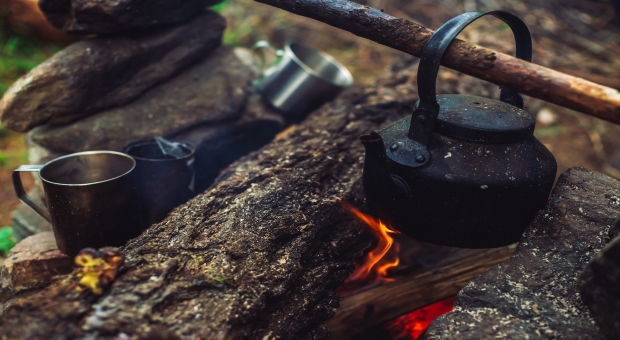


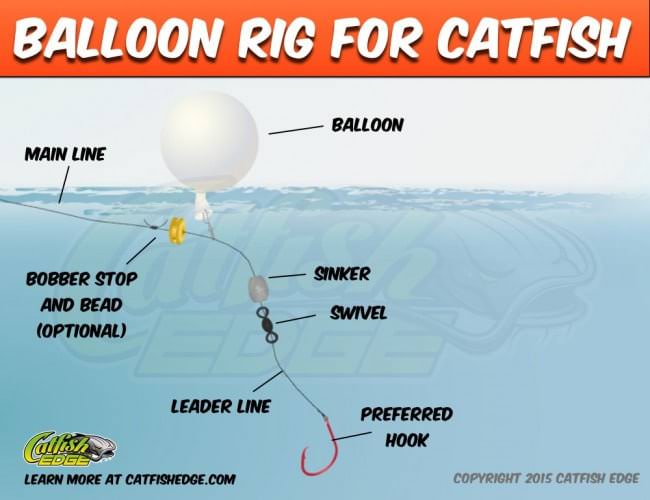

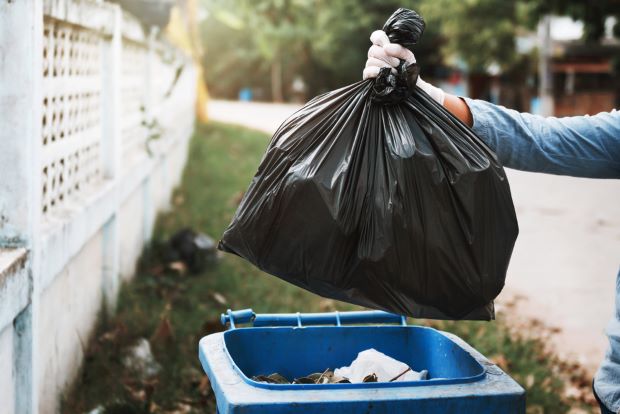
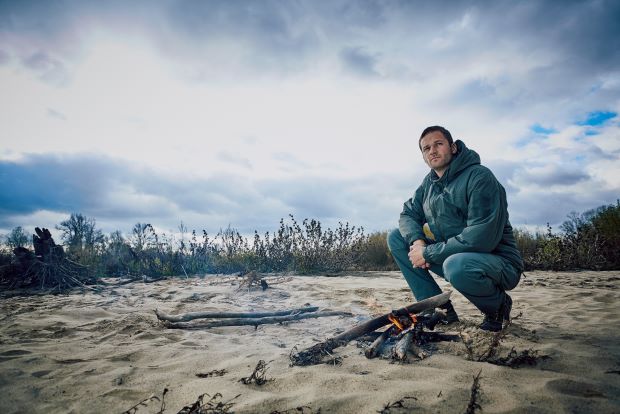
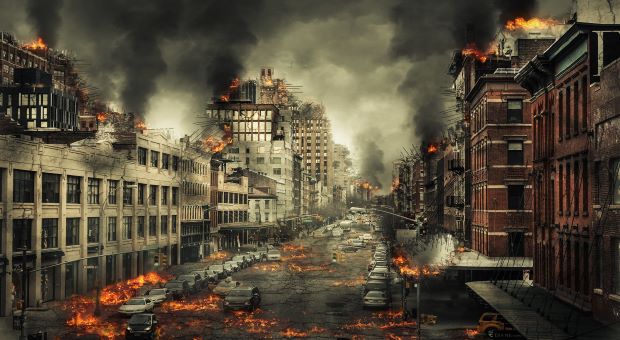
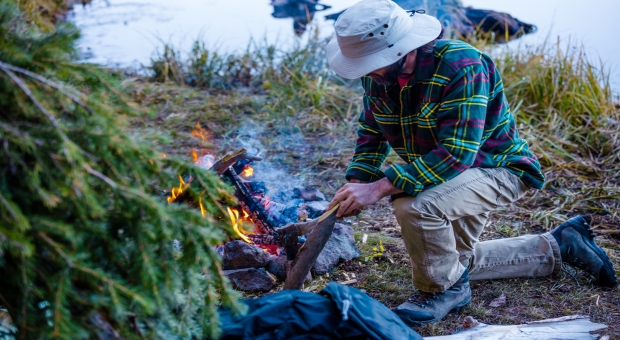

Gordon | June 23, 2019
|
Thank you for this. We need more voices calling BS on much of the false survivalism that seems to surround us these days.
Paul | June 23, 2019
|
Thanks for this column. Good information. All of the things you mention should be “no brainers,” but a lot of people accept the fantasies churned out by Hollywood, and accept them as truth. As you pointed out, this can be fatal. A good rule to live by: If you see it in a movie or TV show, it’s probably NOT true.
Bill in Idaho | June 24, 2019
|
THANK YOU, Bob ! I Cannot think of a More Important Topic – than the one that You have chosen. I truly Hope that Everyone will Read, Re-Read, and comprehend just the Facts that you have provided for us. Thank You.
Ryan | June 24, 2019
|
For the record, unless you have a urinary tract infection, your urine is sterile. This isn’t carte blanche to drink it, but under most circumstances, no, there are no bacteria in it.
Dennis Coburn | October 4, 2020
|
Ryan,
Exactly what makes you think your urine is sterile? Please explain what you mean by sterile and where you got the information that says it’s sterile. I’m not saying it isn’t sterile, but I find it hard to believe and need some help.
Thanks, Dennis
Damien | June 25, 2019
|
I’ve watched many survival tv series include the one which has a guy live in the forest and eat anything he found. But I always think that we need to have knowledge about nature. Which can and can’t touch. If we are not careful, we may have a very bad situation for our health. Thanks for warning us.
Laura Wilson, CD. | July 5, 2019
|
I’ve been prepping for a number of years. Nothing fancy. No big stock pile of food, medical supplies , water or enough fire power to hold off the Chinese army. Just the basics that might keep me alive a while longer than the unprepared. I’m not rich by any means. I’m a senior, a woman on my own but I do have some military training and a positive attitude. But when I hear about survival tactics involving the ‘big grid down’ scenario my eyes roll to the ceiling. Why you ask? Because what is constantly overlooked is the simple fact that with the ‘grid’ down for more than a month, two major disasters could and will most likely occur.
The first would be the melt down of every nuclear reactor in North America due to the lack of power to keep the rods cool and not over heat. After the emergency on site diesel generators have run out of their two to three week supply of fuel…….well, .does Chernobyl ring a bell?
The second scenario was the possibility that Russia or China or even tiny Iran, for that matter, could invade an 1880 style country (North America post grid down) with little effort or push back. That is if scenario number one , by some miracle didn’t happen. because what is the use of invading a country that is going to glow in the dark for centuries to come..
Did I say that I had a positive attitude? Oh my God I feel depressed now. Lol.
Paul | July 31, 2019
|
Laura, Chernobyl was caused by human error, bad design, and poor maintenance. Could it happen again at many other reactors? Absolutely! In an extended grid down scenario reactors would be shut down and all rods would be completely submerged. As for the invasion by another country? In a worse case scenario true. But it wouldn’t be a cake walk and the world knows it. When the civilian world is down the military is still operational. They may be hampered by lack of power on base or post, but individual units will be fully operational. Command and Control will still have communications and eyes on. Don’t put us to bed so soon…
Larry Schlesinger | September 13, 2019
|
Paul is right, in an emergency grid-down situation, a nuclear power plant could be shut down for safety reasons or just continue to generate power locally to supply its own needs without resorting to the backup power system. They are, after all, power generating stations. The grid is just the distribution network of that power for the rest of us. The exception to that would be if an EMP attack fried the plant’s electronic control systems, but there are still some manual backup protocols to safely insert the rods and shut down the reactor.
In a post power USA (assuming the whole world wasn’t equally affected), there would be a delay before an enemy would invade. That would be because it would be to an enemy’s advantage to wait until the local societal breakdown and the chaos that would follow, reaches peak destruction, just before things start to swing back toward recovery and reorganization, to hit us. In other words they would wait until we were at our weakest before attacking and that would be days, weeks or even months after the grid died. A prepared survivalist could use that time to dig in and get ready to defend the country.
Vicki Savage | January 6, 2020
|
I suspect it may take the Chinese army to invade us successfully. Our own government will NOT have succeeded in stripping we the people of our arms, and any military knows that hell hath no fury like an indigent populace against an invasion.
BobG | January 18, 2020
|
After WWII they asked the Japanese why they didn’t invade us after Peral Harbor. The answer was: almost all Americans have guns!
Think how long we have been in Afganistan. How long the Russians were there too.
notanidiotdem | January 19, 2020
|
most anything spouted by bear grylls ……you dont climb rock walls in survival unless you absolutely must dont drink your urine etc…..
Lisa | April 21, 2020
|
Refuse to watch that man. I think he is fake. Yes I watch Life below zero, and Port Protection. The people are more real, also some of their scenarios are too. Mostly I pick up the grit to persevere, think it thru. As a city person recently self transplanted to a small farm, I’m a spunge looking for all the tips I can use.
Sgt S | January 19, 2020
|
Urine can only be used as hydration if it is given in the form of an enema. IT WOULD BE YOUR LAST, LAST, RESORT.
I Cannot stand the BS Byr Grills puts on TV, his methods constantly put him in severe harm from falling, drowning, and infection. Survival is a chess game where one must learn to not take foolish risks. You need to fore think risks and plan carefully other methods to avoid serious risk. Bear will climb down a slippery rock wall inside a waterfall and risk falling on sharp rocks below where you could take the time to come up with a safer route or better method.
Paul Shultz | January 20, 2020
|
Talk about tv shows that are more realistic. Naked and afraid shows you that no matter your skill set, starting a fire searching for food and building shelters is not a walk in the park.
Michael Generoso | February 29, 2020
|
For the record, unless you have a urinary tract infection, your urine is sterile. This isn’t carte blanche to drink it, but under most circumstances, no, there are no bacteria in it.
Sam | April 22, 2020
|
Michael, this is true, as far as it goes. Yes, most of the time it is sterile. But, it is a waste product. It is laden with other things your body needs to get rid of. Chemicals from your environment, mostly, but also a lot from normal bodily processes. It can be distilled, and safe, but you have to be a far thinker to have that in place in time.
Ian Pundt | February 29, 2020
|
Think how long we have been in Afganistan. How long the Russians were there too.
Ian Pundt | February 29, 2020
|
I always knew that most of the things on the list are myths
Mike Mijares | May 7, 2020
|
Wow! this is very informative, liked it
Jim | June 8, 2020
|
In reference to the Japanese reason for not invading, it was Yamamoto who said the reason was “ that behind every blade of grass there is an American with a rifle “
And more to the point…..same reason the Left(Dems) are so adamantly against the second amendment. They will never subjugate us till they disarm us.
Miranda | September 28, 2020
|
Jim I agree. I dont believe they will ever disarm us. I know my family members and friends will not be.
Joeph Baker | October 5, 2020
|
We were trained in the Marine Corps that you could drink your urine 3 times before it gets toxic. However, you are correct that is a LAST DITCH effort to survive dehydration. Just about any other source of hydration is preferable, and not just because of the taste. They also taught us the hypothermia triangle: Wind, Wet, Cold. If you can eliminate one side of the triangle your odds of survival go way up. The next important thing is to know the priority of treating medical emergencies: Start the Breathing, Stop the Bleeding, Treat For Shock. The body can survive an amazing amount of trauma, and quite alot of injury, but never survives asphyxia or bleeding out. Thanks for presenting the realities of survival with real expectations. If you live in an area of evergreen forests it can be harder because these forests don’t supply as much survival needs as deciduous forests, and unless it is the right time of year, surviving on plants is a difficult proposition, especially for they guy that just bought a softcover book on edible plants right before bugging out. Watching shows like Alone are a pretty good example of the reality of survival if you are not highly skilled or experienced, and even then nature can snuff out the strongest and best prepared.
Larry | February 1, 2021
|
Thank you for the information.